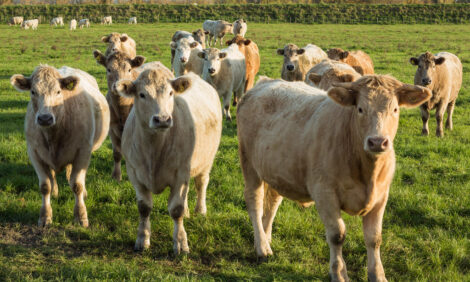



Campaign To Stop Food From Cloned Animals
EUROPE - Eurogroup for Animals has launched a new campaign, Clone-Free-Food, and a Declaration to gather support to end, as soon as possible, the use of cloning for food production in Europe.The Eurogroup for Animals campaign encourages European citizens, politicians and companies, especially food producers and retailers, to show their opposition to cloning by signing the Declaration.
During Eurogroup for Animals Annual General Meeting, Kartika Liotard MEP, rapporteur of the recent Novel Foods directive review became the first signatory to the declaration and encouraged as many people as possible to share her concerns.
Cloning, a technique to reproduce identical animals, is a very controversial and opposed subject on ethical, animal welfare and health grounds, due to the many animals that die in the process and the suffering it causes during pregnancy and birth.
Scientists also agree that the health and welfare of a significant proportion of cloned animals is seriously affected and mortality is considerably higher than with sexually reproduced animals.
Ms Liotard commented: “It is a disgrace that European consumers without knowing and against their will are being served food produced as a result of cloning although 77 per cent of them refuse to accept it according to the Eurobarometer survey."
"The Commission must now act and respect the wishes of Europe’s citizens and defend the welfare of Europe’s animals. We encourage as many people and organisations as possible to sign this declaration and share the information on cloning with their family, friends and colleagues.”
The campaign is designed to raise awareness of the issues related to cloning and to show the European Commission and the European Council that not only European Parliamentarians, but also the majority of society, do not want food on their plates which is the result of animal suffering.
Sonja Van Tichelen, Director of Eurogroup for Animals, said: “Cloning of animals for use in food is completely unethical and unnecessary. We are convinced that banning the products from our markets is possible and in line with international trade rules. What we miss is the political will and the courage to defend our consumers, to protect animals and to find a real solution.”
The European Commission is in the process of preparing a new legislation. Eurogroup is concerned that simply banning the technique in Europe itself will not stop semen and embryos from clones being imported and as a result cloning will only shift abroad.
While the Commission claims that tracing the products will be problematic, it is proposing to introduce labelling, dumping the responsibility on the consumer. Milk and meat resulting from clones will therefore continue to end up in our plates.
If you would like to sign the declaration or learn more about the campaign, visit click here.
TheCattleSite News Desk


